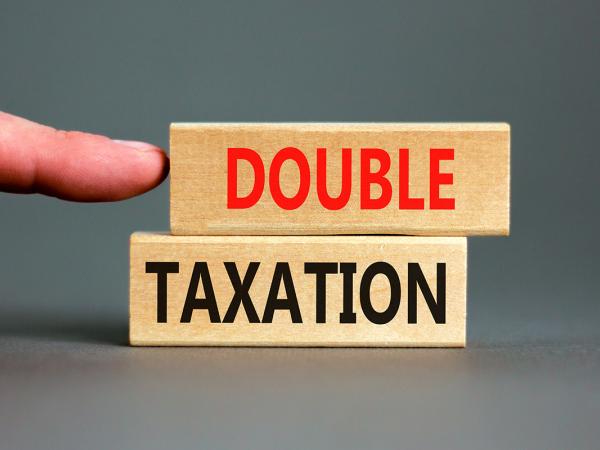Leaving the UK
We provide an overview of the UK tax considerations when leaving the UK.

Content on this page:
Introduction
You might leave the UK for any of a number of reasons. For example, you might:
- work abroad temporarily
- volunteer abroad
- work abroad as a member of the armed forces
- retire abroad
- study abroad
In any of the above situations, you will need to consider your UK tax residence status in light of your move. You may be entitled to split year treatment upon leaving the UK. You might still have to pay UK tax, even if you become non-resident in the UK for tax purposes.
You may be entitled to a UK tax refund for the tax year you leave the UK.
If you are liable to student loan repayments, you may need to inform the Student Loans Company to arrange payment of these directly to them.
You should also consider your National Insurance position on leaving the UK.
In general, our guidance only provides information on your UK tax position. You should seek tax advice in your destination country, too.
General considerations
You should think about the tax effects (both in the UK and the overseas country) of different actions that you might take when you move location, like selling a house.
You cannot assume that the tax consequences of doing things in the UK are the same in the UK and in the country to which you are moving. Let us take a simple example. If you move within the UK and sell your main residence and it has increased in value since you bought it, then UK law says that the capital gain is usually relieved from tax (see our pages on capital gains tax for a simple guide to this relief). But if you move to another country and the sale of your main residence in the UK takes place after you arrive there, that other country may charge you tax on the whole of the gain that arose mostly whilst you were in the UK.
The lesson is that all significant actions taken around the time of a move abroad have to be considered in the light of the tax regimes of both countries. You may also need to consider the terms of a double taxation agreement, if one exists, between the UK and the country you are moving to.
We list below a number of things you should think about. It is not a complete list, as circumstances are so variable. If there are significant assets involved, it is a good idea to take professional advice from a tax adviser familiar with international issues.
Capital gains tax if you sell or give away any assets
If you sell or give away something on which a capital gain might arise, then you need to understand the tax rules in the UK and the country to which you are moving, in order to understand the tax impact of what you are doing in both countries. If there is a double taxation agreement between the UK and the country you are moving to, you also need to consider that. There is a list of the UK’s double taxation agreements on GOV.UK. The timing of a gift or sale could be very important, as we explain on the page Non-residents and capital gains tax.
Letting or selling UK property
If you are going to retain a property in the UK and let it out, then you need to understand the rules in the UK for non-resident landlords. In addition, you may need to pay tax on your rental profit in both the UK and the overseas country.
You usually need to tell HMRC if you sell UK land or property as a non-resident. There are additional factors to consider if the property is, or was previously, your main home in the UK.
If you want to transfer property of any sort between spouses or civil partners, remember that the UK has generous rules which often allow that to happen without tax consequences. The overseas territory may not be as generous, so the timing of when you do it could be important.
Continuing to have UK income
If you are going to continue having other UK income sources when you are abroad, you need to understand how the UK and the overseas country are going to tax those sources. You should also approach HMRC Residency to determine whether any UK sources which are currently paid to you with deduction of UK tax at source can be paid gross.
HMRC may want you to complete a self assessment tax return if you have continuing (or new) sources of income in the UK. Even if you do not normally complete a tax return, you should consider whether you should start to do so once you have left the UK. If so, you will usually need to tell HMRC by 5 October following the end of the relevant tax year (which ends on 5 April).
See also UK tax for non-UK residents on UK income and gains.
Withdrawals from UK pension funds
If moving abroad coincides with cashing in pension funds or receiving a golden handshake (termination/redundancy payment), this needs to be considered with both tax regimes in mind.
If you have a pension from a government or local authority source, some countries will not tax these but they will continue to be taxed in the UK. You need to check whether the UK has a double taxation agreement setting out the rules for which country taxes such pensions.
Taking an extended holiday
Some people moving abroad have an extended holiday between leaving the UK for good and arriving in their new home. Transactions which occur in this window may still be taxed in the UK even though you have left the UK permanently. The precise rules are complex and advice from a tax adviser may be needed if you have significant assets.
Social security
You might be able to continue to receive benefits or make a claim for benefits if you:
- went to a European Economic Area country before 31 December 2020, or
- if you are within scope of the new UK-EU protocol on social security co-ordination, or
- if you go to a country that has a social security agreement with the UK.
You can find a list of countries with which the UK has a social security agreement on GOV.UK. It is important to check the social security agreement with the country you are moving to before you leave.
You should check with the authorities in the other country if you wish to claim benefits in that country.
See NIC in cross-border situations.
Government departments to notify
You may need to inform some or all of the following UK government departments that you are leaving the UK. The below list is not comprehensive, and there may be other UK government departments and organisations that you need to tell, depending on your own personal circumstances.
HM Revenue & Customs (HMRC)
See our page Notifying HMRC when leaving the UK.
State benefits
Child benefit
If you claim child benefit, contact the child benefit helpline.
Council tax and housing benefit
Contact your local council about your liability to council tax, and housing benefit if you were in receipt of it.
UK state pension
The Pension Service, who will decide whether you will be entitled to increases to your UK state pension whilst you are abroad.
Winter fuel payment
If you are entitled to the winter fuel payment you may be entitled to continue to receive it – GOV.UK gives more information.
Other benefits
If you are receiving other benefits from the Department for Work and Pensions (DWP), then you need to contact the particular office dealing with each of the benefits. Do not assume that one office will tell another one.



